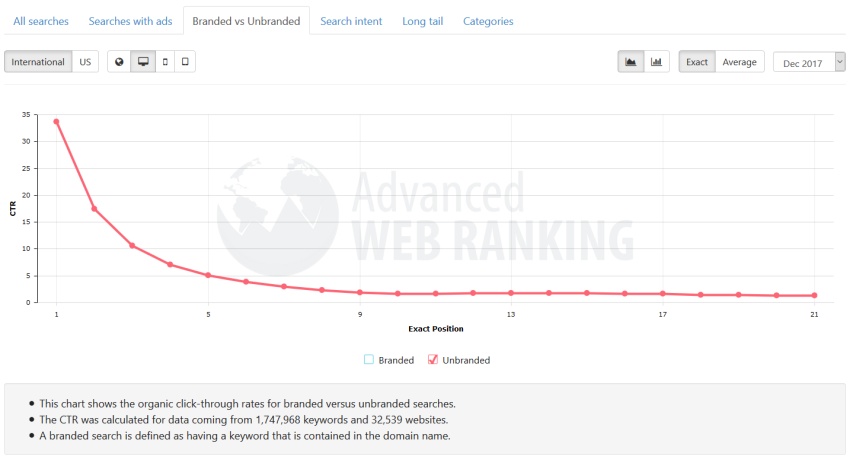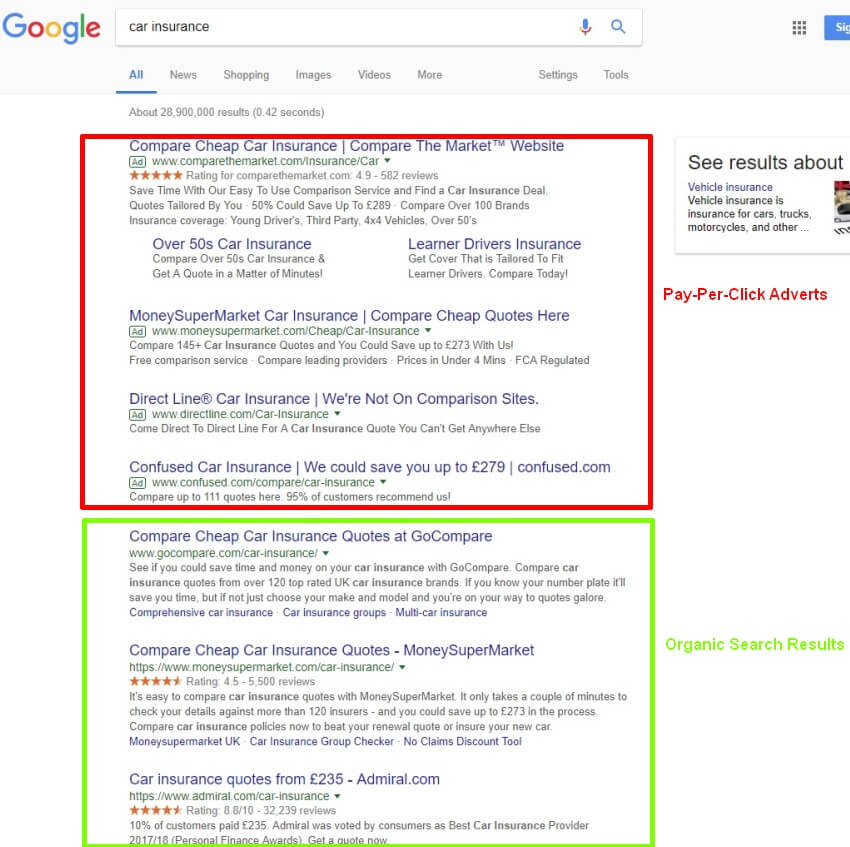Welcome to the world of SEO here you will learn about SEO by so many experts as we share their views about Search engine optimization and how to rank on Google. So come let's see what they say about it.
What is SEO?
(www.moz.com)
Search engine optimization (SEO) is the practice of increasing the quantity and quality of traffic to your website through organic search engine results.
What goes into SEO?
What goes into SEO?
To understand what SEO really means, let's break that sentence down and look at the parts:
- Quality of traffic. You can attract all the visitors in the world, but if they're coming to your site because Google tells them you're a resource for Apple computers when really you're a farmer selling apples, that is not quality traffic. Instead you want to attract visitors who are genuinely interested in products that you offer.
- Quantity of traffic. Once you have the right people clicking through from those search engine results pages (SERPs), more traffic is better.
- Organic results. Ads make up a significant portion of many SERPs. Organic traffic is any traffic that you don't have to pay for.

Organic search traffic is specifically any unpaid traffic that comes from SERPs.
How SEO works
You might think of a search engine as a website you visit to type .... Read More
What Is SEO / Search Engine Optimization?
What Is SEO?
SEO stands for “search engine optimization.” It is the process of getting traffic from the “free,” “organic,” “editorial” or “natural” search results on search engines.
All major search engines such as Google, Bing and Yahoo have primary search results, where web pages and other content such as videos or local listings are shown and ranked based on what the search engine considers most relevant to users. Payment isn’t involved, as it is with paid search ads.
VIDEO: SEO Explained
New to SEO? Start with this quick and easy to understand video about search engine optimization. It’ll quickly cover the basics:
More SEO Advice For Beginners
For more basic but also in-depth advice, our Periodic Table Of SEO Success Factors, shown below, introduces you to all the key concepts you need to know:

You can click on the table to view a larger version of it. You can download a copy to print for easy reference!

You can click on the table to view a larger version of it. You can download a copy to print for easy reference!
Search Engine Land’s Guide To SEO
As a companion to the table, Search Engine Land’s Guide To SEO explains the ranking factors in more depth, in a tutorial providing tips and advice on implementing them.
Links to the entire guide are shown below (start at the beginning... Read More
SEARCH ENGINE OPTIMIZATION(www.wikipedia.com)
Search engine optimization (SEO) is the process of affecting the online visibility of a website or a web page in a web search engine's unpaid results—often referred to as "natural", "organic", or "earned" results. In general, the earlier (or higher ranked on the search results page), and more frequently a website appears in the search results list, the more visitors it will receive from the search engine's users; these visitors can then be converted into customers.[1] SEO may target different kinds of search, including image search, video search, academic search,[2] news search, and industry-specific vertical search engines. SEO differs from local search engine optimization in that the latter is focused on optimizing a business' online presence so that its web pages will be displayed by search engines when a user enters a local search for its products or services. The former instead is more focused on national or international searches.
As an Internet marketing strategy, SEO considers how search engines work, the computer programmed algorithms which dictate search engine behavior, what people search for, the actual search terms or keywords typed into search engines, and which search engines are preferred by their targeted audience. Optimizing a website may involve editing its content, adding content, doing HTML, and associated coding to both increase its relevance to specific keywords and to remove barriers to the indexing activities of search engines. Promoting a site to increase the number of backlinks, or inbound links, is another SEO tactic. By May 2015, mobile search had surpassed desktop search.[3] In 2015, it was reported that Google is developing and promoting mobile search as a key feature within future products. In response, many brands are beginning to take a different approach to their Internet marketing strategies... Read More
4- SEO Made Simple: A Step-by-Step GuideSource:(www.neilpatel.com)

Guess how many blog posts people publish each day.
Any ideas?
Well, WordPress users alone publish over 2 million posts every day. That comes out to 24 blog posts every second.
That means that users published around 216 blog posts while you were reading these five sentences.
And that’s only counting WordPress users. If we were to count all blog posts, that number would surely be higher.
This makes it kind of tough to stand out. But you have to if you want to make your blog a successful one.
While I often spend 4-5 hours writing my blog posts, the ten minutes I spend optimizing each post are easily the most important.
No wonder millions of people Google the term “SEO” each month.
On any given day, people conduct more than 2.2 million searches. And that’s just on Google — to say nothing of the other search engines.
Therefore, showing up on the front page of Google can be the deciding factor between a business that’s thriving and one that’s, well, bankrupt.
But what does SEO even mean?
You probably know that it stands for search engine optimization, but what do you need to optimize?
Is it the design? Or is it the writing? Or maybe it’s the links.
Yes, yes, and yes — it’s all of that and more.
But let’s start this SEO guide at the beginning.
Definition: According to Wikipedia, SEO is “the process of affecting the visibility of a website or a web page in a search engine’s unpaid results.”
Alright, let’s translate that to English. Here’s my go at it:
Search engine optimization (SEO) is the process of optimizing your online content so that a search engine likes to show it as a top result for searches of a certain keyword.
Let me break that down even further... Read More
The First 9 Things You Should Learn In SEOThe First 9 Things You Should Learn In SEO
When you first enter the world of search engine optimization (SEO), you may feel intimidated at the sheer volume of things to learn. You know that many professional optimizers have been in the game for over a decade, constantly learning new things as Google comes out with new updates.
Obviously, there’s a learning curve to get started, and when you’re beyond that, you’ll need to play catch-up on all the new tactics and strategies coming out.
But before you feel too overwhelmed, you should understand that while SEO involves many components, each component by itself isn’t especially complicated; if you break SEO down to its core fundamentals, it’s actually pretty learnable.
So which SEO fundamentals should you learn first?
1. The big picture. Before you get started with individual tricks and tactics, take a step back and learn about the “big picture” of SEO. The goal of SEO is to optimize your site so that it ranks higher in searches relevant to your industry; there are many ways to do this, but almost everything boils down to improving your relevance and authority. Your relevance is a measure of how appropriate your content is for an incoming query (and can be tweaked with keyword selection and content creation), and your authority is a measure of how trustworthy Google views your site to be (which can be improved with inbound links, brand mentions, high-quality content, and solid UI metrics).
2. Domain authority and page authority. Next, you should learn about domain authority and page authority, and how they predict your site’s search rankings. Here’s the basic idea; your site’s domain authority is a proprietary score, provided by Moz, of how “trustworthy” your domain is. It’s calculated based on the quantity and quality of inbound links to your website. The higher it is, the higher all your pages across your domain are likely to rank in organic search results. Page authority is very similar, but page-specific, and you can use it to engineer a link architecture that strategically favors some of your pages over others. Authority depends on the authority and volume of inbound links... Read More
What Is SEO?(www.screamingfrom.co.uk)
Search Engine Optimisation (SEO) is the practice of increasing the number and quality of visitors to a website by improving rankings in the algorithmic search engine results.
Research shows that websites on the first page of Google receive almost 95% of clicks, and studies show that results that appear higher up the page receive an increased click through rate (CTR), and more traffic.

The algorithmic (‘natural’, ‘organic’, or ‘free’) search results are those that appear directly below the top pay-per-click adverts in Google, as highlighted below.

There are also various other listings that can appear in the Google search results, such as map listings, videos, the knowledge graph and more. SEO can include improving visibility in these result sets as well.
How Does SEO Work?
Google (and Bing, which also power Yahoo search results) score their search results largely based upon relevancy and authority of pages it has crawled and included in its web index, to a users query to provide the best answer.
Google uses over 200 signals in scoring their search results and SEO encompasses technical and creative activities to influence and improve some of those known signals. It’s often useful to not focus too much on individual ranking signals and look at the wider goal of Google, to provide the best answers for its users.
SEO, therefore, involves making sure a website is accessible, technically sound, uses words that people type into the search engines, and provides an excellent user experience, with useful and high quality, expert content that helps answers the user’s query.
Google has a very large team of search quality raters that evaluate the quality of search results, that gets fed into a machine learning algorithm. Google’s search quality rater guidelines provide plenty of detail and examples of what Google class as high or low quality content and websites, and their emphasis on wanting to reward sites that clearly show their expertise, authority and trust (EAT).
Google uses a hyperlink based algorithm (known as ‘PageRank’) to calculate the popularity and authority of a page, and while Google is far more sophisticated today, this is still a fundamental signal in ranking. SEO can therefore also include activity to help improve the number and quality of ‘inbound links’ to a website, from other websites. This activity has historically been known as ‘link building’, but is really just marketing a brand with an emphasis online, through content or digital PR for example.
Relevant and reputable websites linking to a website is a strong signal to Google that it might be of interest to its users, and can be trusted to appear in the search results for relevant queries... Read More


Great blog learned many things about Search engine optimization from your article, very informative. The Top 10 Seo Companies in Chennai is the best place to learn about SEO in Chennai.
ReplyDeleteReally great post with a lot of insight! You covered some of the basics and most crucial elements of SEO. Really helpful for beginners interested in SEO!
ReplyDeleteseo tips Thanks for sharing an information about Corporate and I Must Say it’s really helpful for us
ReplyDelete